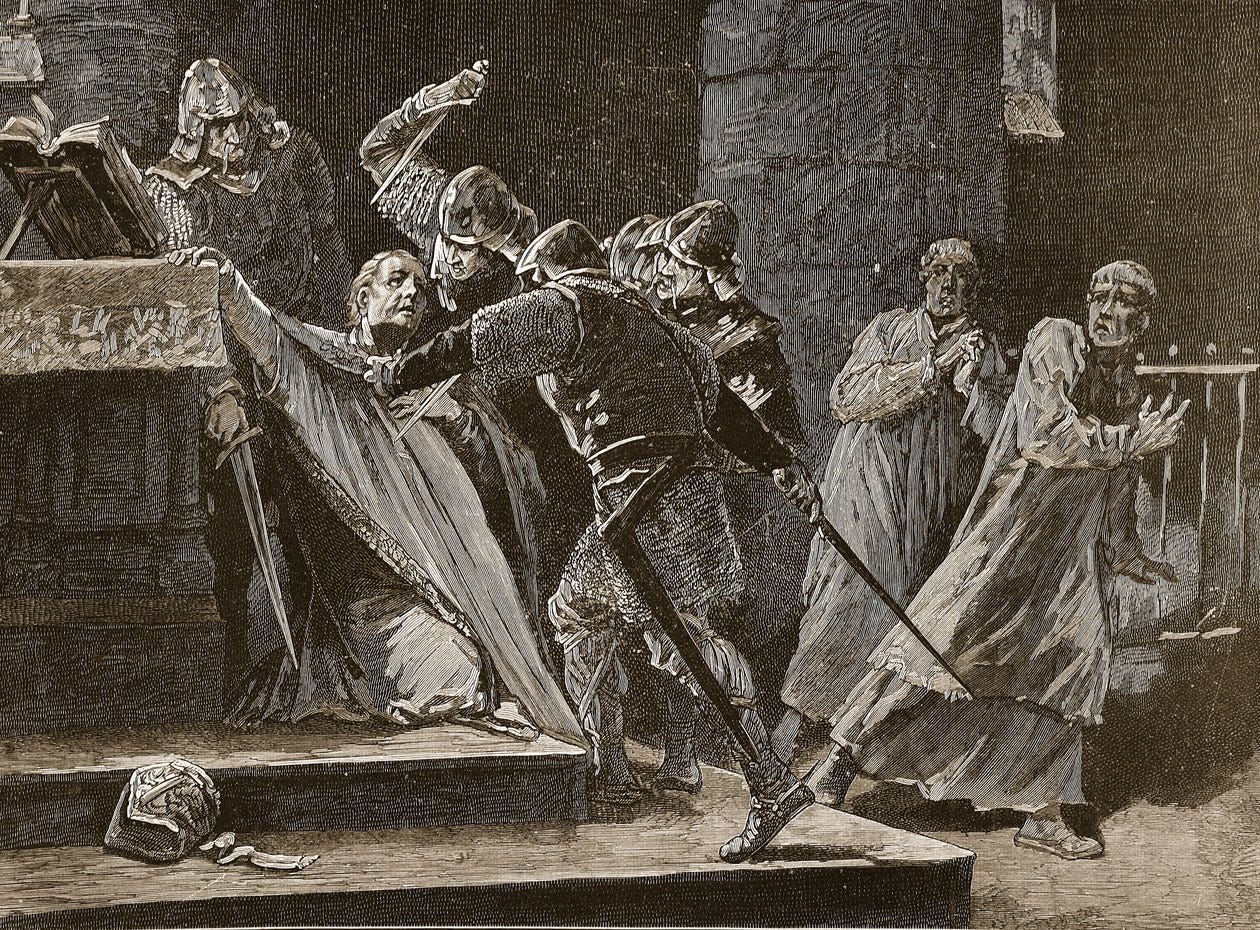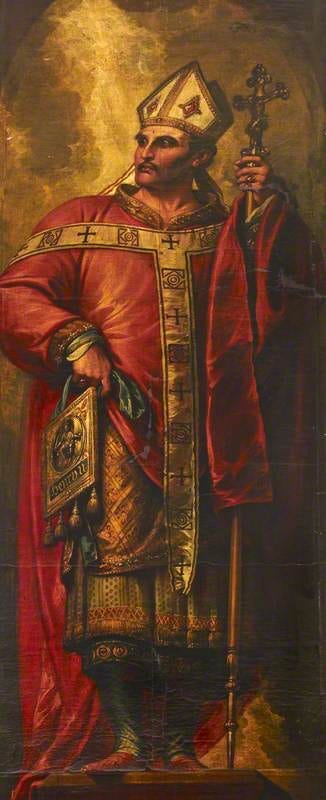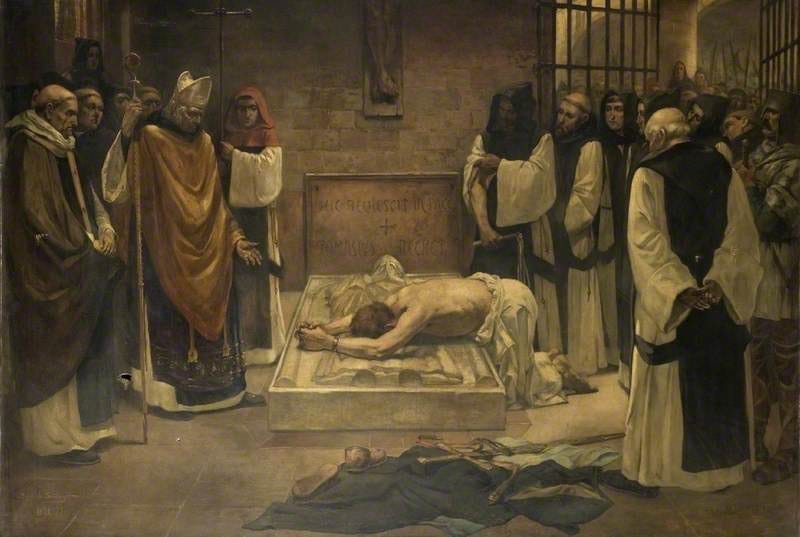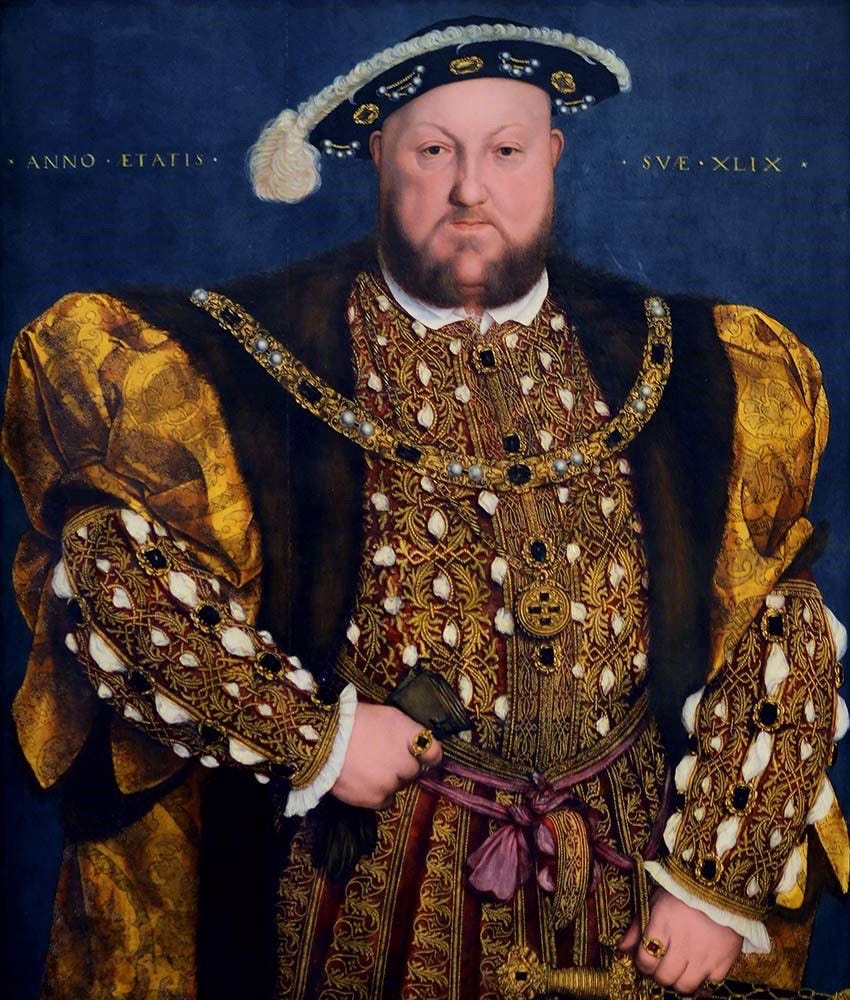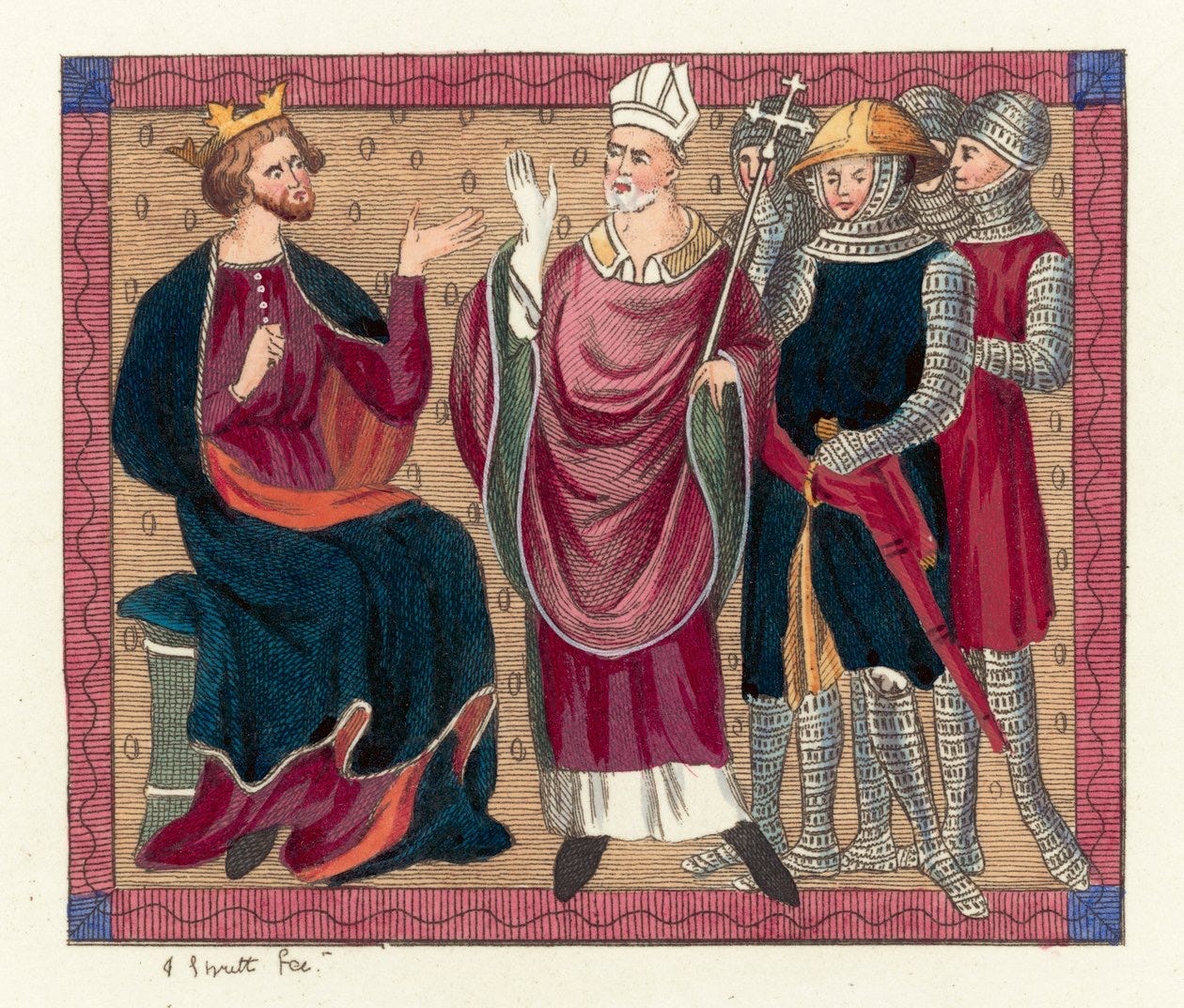The Lesson Every King Must Learn (or else lose his kingdom)
900 years ago, four knights crept into the cathedral at Canterbury with swords drawn, ready to assassinate the most important bishop in England.
St. Thomas Becket stood at the altar, head bowed in prayer, ready to accept his martyrdom.
The story of St. Thomas Becket is an interesting one—not because a powerful king killed an enemy. That’s standard operating procedure for most royalty.
Becket‘s martyrdom is interesting because of how it compares to the martyrdom of St. Thomas More.
The political motives of the kings and spiritual motives of the saints are the same. Yet the outcome is drastically different. And in those differences there is a lesson:
A king must submit to the Church…or else lose his kingdom.
Tale of Two Thomases
Thomas Becket did not begin his career as a priest. He began as a clever and ambitious clerk who developed a friendship with King Henry II who later appointed him Chancellor, one of the most powerful positions in the kingdom.
400 years later another King Henry made another Thomas chancellor of England. Henry VIII and Thomas More were close friends as well.
In both cases, Thomas was loyal to King Henry. But both More and Beckett had a higher loyalty: to Christ and His Church.
Henry II made Thomas Becket the Archbishop of Canterbury because he wanted to solidify his control over England.
The political situation in England in 1160 was not favorable to the monarchy. Henry’s grandfather, King Henry I created a stable government but the next king, Stephen I, let it fall into disarray. So, King Henry II was aggressive in reunifying Britain under one government.
Henry thought the Catholic Church (the only Christian Church at the time) stood in his way. Britain was divided into local regions more loyal to their parish or bishop than the crown.
So Henry II made Thomas the Archbishop of Canterbury to consolidate the churches and place loyal bishops in key positions. He wanted total control over the Church in England.
Becket accepted the appointment but refused to give Henry control.
Henry VIII also wanted to consolidate his control over Britain. His problem was his wife Catherine had not given him an heir. Without an heir a king is less powerful, typically because the next in line is already gaining influence and allies.
The Church’s law on divorce (or rather God’s law on the matter) stood in the way of Henry VIII. So he declared himself the head of the English Church.
More refused to recognize the divorce and refused to sign off on Henry VII’s claim to headship of the English church.
Becket and More supported their kings’ expansion of temporal power but they drew a line at seizing spiritual power. Becket was outspoken in his criticism and More was silent but both met the same fate.
So why was the aftermath so different?
The Victory of Henry II
When Thomas Becket was murdered the outcry was enormous. Both king and peasant across Europe mourned the Archbishop and were shocked by Henry II’s crime.
Henry could have maintained his innocence. He could have claimed his men acted on their own volition. But he did not.
Instead Henry II, King of England, did public penance in Canterbury. He wore sackcloth and allowed the bishops and monks to strike him with reeds.
His acts of penance put him back in the good graces of the pope, which was fortunate because he was about to face an insurrection.
Henry II’s sons gathered allies and led a rebellion against their father. The pope and other Christian kings sent Henry aid to defeat the rebellion.
Henry not only ended the rebellion but also reintegrated his enemies under his rule as allies. He became a powerful force in Europe, so well-respected he negotiated disputes between other kingdoms.
He established a legacy that lasts to this day. Historians credit Henry for establishing the English Common Law, a foundation for unity in Britain.
Henry attributed his success to the prayers of his martyred friend.
Henry II’s story is ironic. He was afraid more power for the Church meant less power for him. The exact opposite was true. In submitting to the Church, he became more powerful than ever, and the kingdom of England became more unified. A more powerful Church meant a more powerful King.
The Defeat of Henry VIII
The ending of Henry VIII’s story is much different. Despite his desire to consolidate his power by getting rid of the church England became more divided than ever before.
Henry VIII thought the country was split between loyalty to the crown and loyalty to the pope. So, he made himself both the spiritual and secular leader of England, thinking the country would be united under the crown.
The exact opposite happened.
Placing that power in the crown meant the religious whims of the monarch determined which practices were allowed. When Henry died and his children took power, England swung from Protestant to Catholic and back again, leaving the people divided.
By dissolving the monasteries and seizing their property, Henry thought he would strengthen England’s economy. But the monastery system supported the English countryside in ways he did not understand. England became financially weaker as a result.
Henry also believed by joining the growing Protestant movement in Europe he would receive support from those nations. That was also a mistake. The Protestant countries were divided by doctrinal disputes over who was less Catholic while unified Catholic countries undermined England’s government by funding Catholic rebellions.
Henry VIII and Henry II faced a choice: the Church or the State. Henry II chose the Church and received both. Henry VIII chose the State and lost both.
Seek First the Kingdom
“Seek ye first the Kingdom of God and His Righteousness and all of these things will be added unto you.”
Discussions about Church and State, spiritual and secular power, treat them like two opposing forces. Like Henry VIII, they assume if one grows, the other shrinks.
But as Henry II learned, when the Church grows, the State grows too.
The Church and the State are like the body and soul: distinct but united. Christ says we must our earthly life to him if we want to attain eternal, spiritual life. If we seek control over our earthly life, we will lose it.
When we listen to our body over our soul, we sin (lust, gluttony, sloth, etc.) and our body slowly does. When a king or President listens to the “needs of the state” over the Law of God and His Church, he sins and the state slowly dies.
Even if the Laws of the Church go against popular wisdom, a state will unravel if it does not follow them.
But the good news, as Henry II learned, if you give the earthly power over to God, it miraculously grows anyway. If you try to grow it without God, like Henry VIII, it will die anyway.
Modern Kings (leaders of nations, states, cities, companies, and families) should ask themselves what kind of king do you want to be.
Henry II or Henry VIII?



